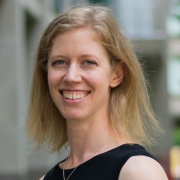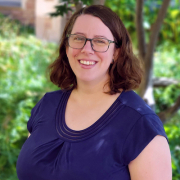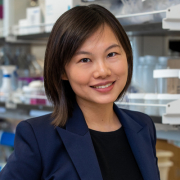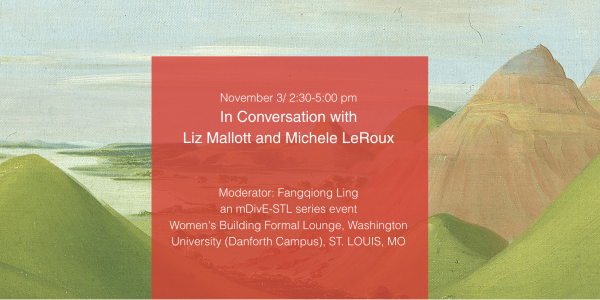In Conversation with Michele LeRoux and Liz Mallott
Join us for an enlightening evening with stellar women faculty Dr. Liz Mallott and Dr. Michele LeRoux, who recently established their lab groups at Washington University.
Dr. Mallott is an assistant professor in the Department of Biology. Dr. Mallott’s research focuses on the causes and consequences of variation in the gut microbiome ranging from non-human primates to adults and children in the United States. Dr. LeRoux is an assistant professor in the School of Medicine's Molecular Microbiology Department. Her group studies the molecular arms race between bacteria and phage in contexts that include phage therapy.
Microbes perform various functions indispensable to organisms or the environment. Research on microbes of diverse ecosystems (mDivE) is happening in St. Louis. The Living Earth Collaborative hosts the mDivE event series to foster interactions and collaborations among researchers working on or interested in this field.
In this event, Dr. Mallott and Dr. LeRoux will engage in a stimulating dialogue with Dr. Fangqiong Ling, assistant professor of Energy, Environmental & Chemical Engineering and co-chair of the mDivE series. Their conversation will explore the exciting frontiers of research on microbial interactions across scales to address societal challenges, as well as their journeys in establishing their respective groups.
Seating is limited, so don’t miss this rare opportunity to participate in this exclusive event. Reserve your spot by Tuesday, October 31!



About Dr. Mallott and Dr. LeRoux
Dr. Liz Mallott currently is an assistant professor in the Department of Biology at Washington University in St. Louis. She completed her PhD in biological anthropology at the University of Illinois Champaign-Urbana in 2016, followed by postdoctoral training at Northwestern University, Dartmouth College, and Vanderbilt University. Dr. Mallott’s research focuses on the causes and consequences of variation in the gut microbiome. Much of her research examines how diet, environmental change, and host physiology impacts wild nonhuman primate gut microbiomes, but her recent work includes identifying factors shaping microbiome variation in adults and children in the United States. Dr. Mallott’s current work investigates how flood-mediated environmental exposures to pollutants and pathogens alter the gut microbiome and subsequently impact health in residents of Southwestern Illinois in a Transdisciplinary Institute in Applied Data Sciences (TRIADS) grant.
Dr. Michele LeRoux completed her undergraduate degree in Molecular Biology at Colgate University. She performed her graduate research at the University of Washington in Seattle in the laboratory of Dr. Mougous, where she studied how the opportunistic bacterial pathogen Pseudomonas aeruginosa uses the type VI secretion system to defend itself from bacterial competitors. She did her postdoctoral training at the Massachusetts Institute of Technology in the laboratory of Dr. Michael Laub, where she studied the biological function of a group of genetic elements called toxin-antitoxin systems in Escherichia coli. She focused her research on the ability of these systems to defend against bacteriophage, the viruses that infect bacteria. She established her lab at Washington University School of Medicine in the Molecular Microbiology Department in September 2022, where her lab is investigating the evolutionary arms race between bacteria and phage. She was recently awarded an NIAID DP2 NIH Director's New Innovator Award to investigate how bacterial cellular immunity pathways contribute to the exquisitely narrow phage host with the goal of creating an expanded host range phage cocktail for phage therapy. In a collaborative project with Dr. Courtney Reichhardt’s group, her lab is also uncovering mechanisms that phages have evolved to disrupt bacterial biofilms; this work was recently awarded an OCVR Interdisciplinary Seed Grant.
RSVP
